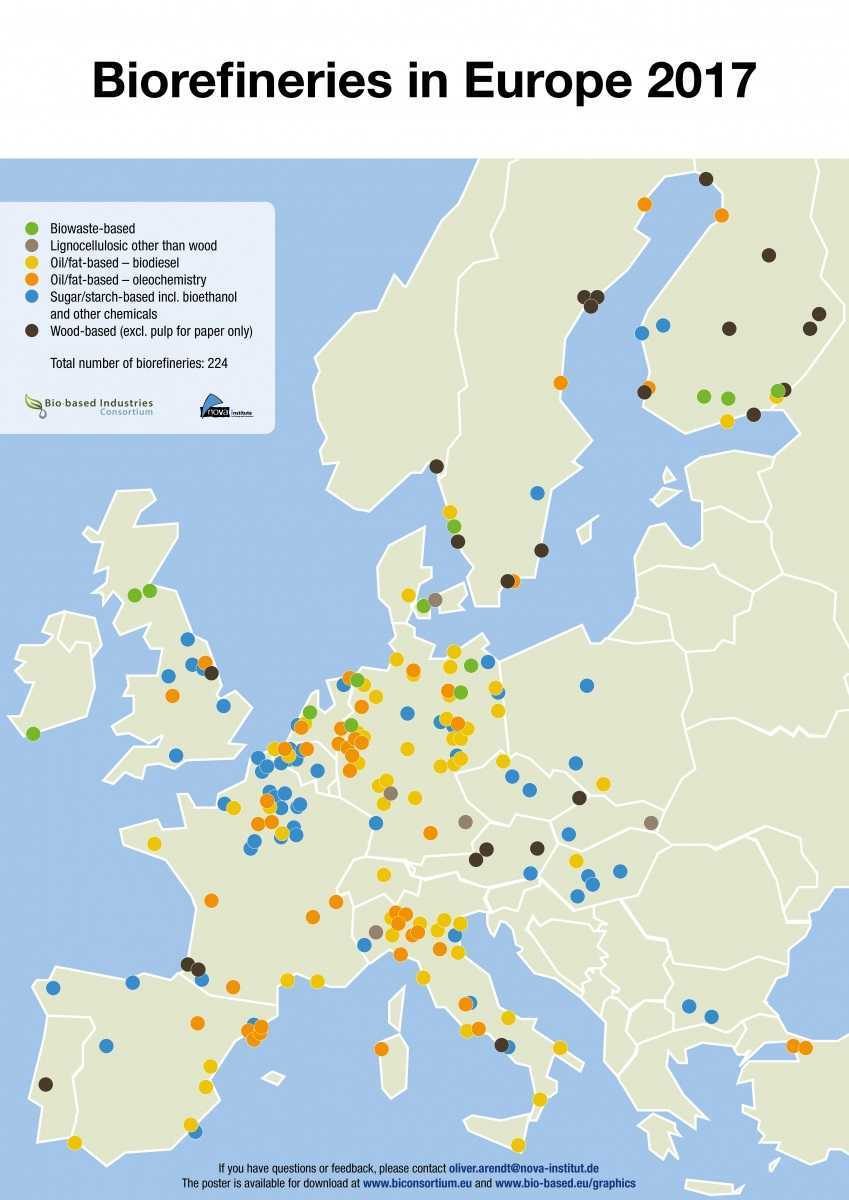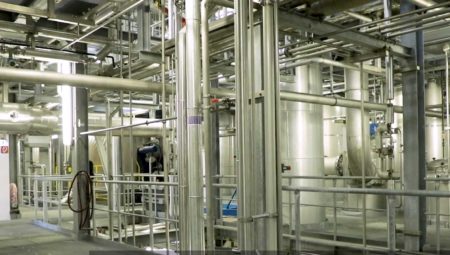To make European bio-based activities more visible, the Bio-based Industries Consortium (BIC) and nova-Institute have developed a poster that maps the commercial biorefineries in Europe anno 2017.
For the map, a biorefinery has been defined as ‘an integrated production plant using biomass or biomass-derived feedstocks to produce a range of value added products and energy’.
Between July and November a survey was organised to gather biorefinery information across Europe. In total 224 biorefineries have been mapped. The mapping exercise shows the diversity of biomass used as well as different types of biorefineries:
- the oil-/fat-based biorefineries mainly produce biodiesel (64) or oleochemicals (54);
- 63 sugar-/starch-based bio-refineries mainly produce bioethanol, but also products for use in food or feed or biochemicals;
- 25 wood-based biorefineries (excluding pulp for paper only) produce pulp, tall oil, specialty cellulose or bioethanol;
- 5 biorefineries produce cellulosic fibre or bioethanol from other lignocellulosic feedstock, such as wheat straw, Miscanthus or switch grass;
- 13 biorefineries produce bioethanol or biodiesel from biowaste (incl. food waste).
The mapping will be updated annually. The poster will be distributed during the European Commission Bioeconomy Policy day in Brussels and can be downloaded from the BIC website.
The mapping also includes some first of a kind integrated biorefineries. Namely the BBI JU Flagships ‘First2Run’ plant in Porto Torres, Italy (Azelaic acid, pelargonic acid, their esters, other chemicals intermediates from underutilized oil crops such as cardoon), ‘Bioskoh’ plant under construction in Strazske, Slovakia (bioethanol from agricultural waste) , ‘EXILVA’ plant in Sarpsborg, Norway (microfibrillated cellulose from wood: Norwegian spruce) and ‘PEFerence’ plant in Antwerp, Belgium (Furanics from plant-based sugars).
Dirk Carrez, Executive Director of the Bio-based Industries Consortium: ‘The bioeconomy is growing in Europe. Innovative technologies and advanced biorefineries are at the heart of the bio-based economy concept. They transform biomass and wastes into green everyday products, making society more sustainable and the economy more circular’.



